 When workign with couples I use Imago Relationship Therapy. Imago places a great emphasis on safety. An Imago couples counsellor will work hard at keeping both partners safe and ensure that they keep each other safe as they are talking. This post looks at why it’s important to feel safe in our relationships and how this allows growth for both partners.
When workign with couples I use Imago Relationship Therapy. Imago places a great emphasis on safety. An Imago couples counsellor will work hard at keeping both partners safe and ensure that they keep each other safe as they are talking. This post looks at why it’s important to feel safe in our relationships and how this allows growth for both partners.
Let’s start at the beginning, and I mean the very beginning for us humans. We are going to talk about the human evolutionary journey. There is now plenty of evidence to suggest that our brains formed in three stages;
- First our lizard brain formed (the brain stem) – we were pretty basic creatures at this stage so needed tactics to stay alive. When under threat this part of our brain tells us to fight, run away, freeze (think rabbit in headlight) or submit.
- Next came our mammalian brain (the limbic system) – this allowed us to have emotions, become social animals and form relationships (think wolves in packs).
- Finally our logical brain (the cerebral cortex) – this is our thinking part, the only animal with a bigger cerebral cortex than humans is the dolphin (so don’t play chess with them ‘cos they will beat you). This is our speech, writing, maths, time and logical process centre. It’s the part of the brain that allows us to make decisions and veto those biological urges we have that may not be useful for us, e.g playing dead when sitting examinations has never been a great strategy if we want to progress up the education ladder!
I guess you can see where this post is now heading! When we apply this model to our relationships it becomes obvious that shouting at our partner is not going to get us what we want. If they get scared then old lizard brain kicks in and you may as well be talking to a gecko! Their brains are not going to have the capacity to think things through and they are just going to be focusing on survival. Logic and mammalian brain are switched off and they get ready to run away, do nothing, attack back or just agree with everything you say in an attempt to shut you up. Been there? I know I have!
Everyday strategies to avoid lizarding your loved one!
Many of these techniques are naturally built into Imago Relationship Therapy, but you don’t need to be working with a therapist to do them. Try the following:
- Book an appointment with your partner when you want to talk about something important to you. It may be that they are ready to listen to you right there and then. If not, agree a time when both of you are in the right frame of mind to discuss the issue.
- Avoid criticism, contempt, stonewalling and defensiveness when talking to your partner. Once you introduce any of these bad boys into the conversation you are going to be talking to a lizard faster than you can say “Godzilla”! Check out my post on these four relationship wreckers here.
- Stick with “I” statements. Talking about yourself rather than your partner is much less confrontational and will keep your partner safe.
- Have a soft start up. Ease your way into the discussion rather than hitting your partner full in the face with your demands! “I realise you are working really hard to bring money in for the family and I miss you when you aren’t around at dinner time” feels very different to “you are always bloody late for dinner you selfish pig”! John Gottman found that he could predict the outcome of an argument from the first sentence very accurately. Soft startups allowed discussion to happen (lizard free), whilst harsh startups pretty much always rapidly descended into arguments where both partners felt hugely wronged.
- Repair as you go along. Once more, Gottman found that couples adept in the art of repairing whilst arguing stayed together. It was one of the most common skills found in couples that had been happily married long term. A repair attempt might be something like “yeah – I could see how you would think that, I was pretty grouchy yesterday” or “I know you are stressed at work at the moment and you don’t mean to snap at me”. It’s basically putting yourself in your partner’s shoes and validating their point of view.
If you can do a few of the suggestions above you are well on the way to a lizard free relationship. You’re not going to get it right all the time, no one does, but these techniques can make a significant difference to the feel of the relationship and make it a safer place to be. With safety comes the potential for change and growth for you both.
 There are many books out there on therapy, self-help, counselling and personal change so how do you know which ones are worth reading and which ones are best avoided? Personal recommendations count for a lot and I often get asked what books to read. Some of the following five books have been recommended to me and I have happened upon others by luck, chance or good fortune. I see it as my turn to pass on those recommendations, or that luck, to you.
There are many books out there on therapy, self-help, counselling and personal change so how do you know which ones are worth reading and which ones are best avoided? Personal recommendations count for a lot and I often get asked what books to read. Some of the following five books have been recommended to me and I have happened upon others by luck, chance or good fortune. I see it as my turn to pass on those recommendations, or that luck, to you.
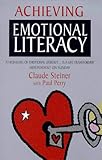
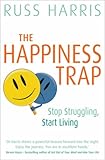
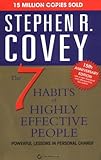
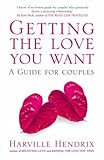
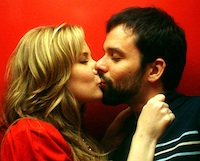 What is the “Imago” and what does it have to do with how and why we choose our partner? As a psychologist and couples therapist, I’m often asked what my view is on what brings couples together, on what that attraction is, and what it is about. Here is my answer, and it lies within the concept of the Imago which I’ll explain shortly. Warning: if you’re looking for an answer that is about soulmates or karma or fate or beshert, you’ll be disappointed. My answer is based upon psychological principles.
What is the “Imago” and what does it have to do with how and why we choose our partner? As a psychologist and couples therapist, I’m often asked what my view is on what brings couples together, on what that attraction is, and what it is about. Here is my answer, and it lies within the concept of the Imago which I’ll explain shortly. Warning: if you’re looking for an answer that is about soulmates or karma or fate or beshert, you’ll be disappointed. My answer is based upon psychological principles.